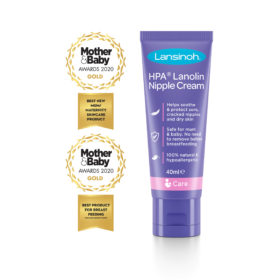Rådgivningsartikler
- Hjem
- Rådgivningsartikler
- Amning
- Baby’s First Feed
Baby’s First Feed
Baby’s First Feed
 Read breastfeeding advice and what to expect in the first few days after your baby has been born. Including why colostrum is so important and how often you should expect to feed your baby.
Read breastfeeding advice and what to expect in the first few days after your baby has been born. Including why colostrum is so important and how often you should expect to feed your baby.
If you and your baby are well, you will be encouraged to breastfeed as soon as possible, as his sucking reflex is strongest soon after birth. If you put your baby straight to the breast after birth, it will help your uterus to contract and speed up delivery of the placenta. But don’t worry if your baby does not latch on immediately – the skin-to-skin contact will help him to regulate his body temperature and breathing, and will stimulate your milk.
Colostrum – the perfect food for your newborn
Your body will have started to make colostrum midway during pregnancy. This first milk ranges in colour from pale lemon to light brown, and contains around three times more protein than mature human milk, as well as antibodies, vitamins and minerals. In fact, colostrum is made up of over 60 components, of which 30 are exclusive to human milk. Colostrum helps your baby to produce his first stool to excrete meconium (the substances ingested while in the womb) and lines his stomach and intestines to better defend against bacteria and viruses. It comes in very small quantities at first, gradually increasing as the baby suckles more, as new-born babies have tummies the size of a marble An average feed during the first day is only around a teaspoon full. Some mothers express a little colostrum into syringes to freeze during the last trimester of pregnancy, in case either they or their baby face feeding difficulties at birth.
How often should I feed my newborn?
Some babies are sleepy for the first few days and need to be encouraged to feed at least three-hourly. It is perfectly normal for a new-born baby to lose a little weight after he is born; on average a baby will lose 7% of his weight during the first week of life and will, in general, be back up to birth weight on or before two weeks of age.
When will my mature milk come in?
The delivery of the placenta triggers the second stage of lactation, and your full term milk will come in on day 3-5. Your baby’s tummy will grow to accommodate the greater amounts, and so will need to feed often at first: about 8 to 12 times in a 24 hour period. Feeds become more spread out as your baby grows older.
Relaterede kategorier
Related Articles
-

Breastfeeding Positions
Across Lap - Cradle Hold With the across lap - cradle hold breastfeeding position, the baby’s...
Read More -

The importance of breastfeeding
Studies have shown that the health benefits of breastfeeding for both mother and baby are extensive,...
Read More -

Amning – De Første Dage
Bare bliv ved med at at tro på, at du giver din baby det...
Read More
Relaterede produkter
-

TheraPearl® 3-i-1 Brystomslag
De fleksible og genanvendelige... Læs mere -

HPA® Lanolin Brystvorte creme
Ømme brystvorter er meget almindelige under amning og kan ofte være et resultat af... Læs mere

